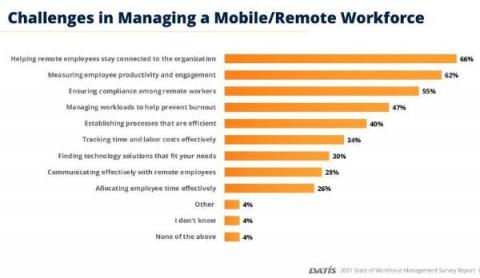Teams | Collaboration | Customer Service | Project Management
Customer Experience
Creating an effective customer journey to reduce customer churn
Acquiring and retaining new customers is a big challenge for companies across all sectors. Customers quitting your brand and departing unexpectedly are every managers’ worst nightmare. Companies may proactively take action to persuade customers to stay by knowing what they want and recognizing tell-tale signals of upcoming churn. The journey mapping will make you discover issues and problems related to your company procedure due to which churn rate occurs.
The role of Workforce Management in building future-ready support
2 years into the pandemic, the business landscape has changed with the speed of light. While 74% of professionals expect remote work to become standard, managing a distributed workforce has its unique challenges. Overseeing disjointed teams and handling resource crunch has led to fragmented data, frustrated agents, and poor customer experience. This has made companies ask themselves whether they are ready for the future of work?
The 15 Best Customer Experience (CX) Tools for 2022
How do your customers really regard their experience with your brand when they use your companies’ products or services? Customer experience (CX) relates to just this. Spanning the entire relationship that a customer has with a company, CX encompasses each and every touchpoint – from in-store to online shopping, browsing a website, and interacting with customer support teams.
Customer Support: Definition, Importance and 6 Key Strategies
Many of us have experience interacting with customer support agents in various contexts, from streaming service subscriptions and car rental bookings, to online clothing purchases. For businesses worldwide, offering timely support across multiple channels and touchpoints is critical in today’s highly competitive and digital-first world. A strong customer experience strategy is a defining feature that sets companies apart – yet what do customer service and customer support truly mean?
Kickstarting your customer experience program
If you’re not yet focusing on the customer experience with your organization, it’s time to get started and kick it into high gear. Customer expectations are higher than ever and evolving. You’ve got to get ahead of that. There are often challenges to getting a customer experience program off the ground in any organization, so let’s overcome those and get moving.
What is customer experience optimisation? (+3 actionable tips)
When it comes to optimising the customer experience (CX), your work is never really done. Consumer expectations are increasingly rising, and the world of technology is constantly evolving – making it difficult for business leaders to keep up.
Women of Influence: The Top 25 Innovative CX Leaders
As the COVID-19 pandemic disrupted many industries worldwide, customer experience proved to be more important than ever. From introducing cryptocurrency to the Latin America market, to offering a free learning online platform for students and playing a key role in the digital transformation of health services, these leaders are making waves in the CX space, and inspiring others along the way.
Getting AI-Powered Customer Service Right
Artificial intelligence (AI) in customer service isn’t a new concept. Harnessing the true power of AI has been an ongoing conversation in the CX world for years, but it’s a notoriously hard thing to get right. Customer-bot interactions can swing wildly from absolutely incredible to brand-damaging, depending on how AI was implemented and how successfully it learned from prior interactions.
Why Brands Need a Messaging-First Approach to Customer Service
The last two years have proven that customer-first businesses must be flexible to thrive. That means meeting customers where they are—and where they haven’t been able to be. How do you, as a business, satisfy the human need for social interaction amid physical distancing? How do you nurture brand loyalty when you can’t work off of facial cues? And—keeping your ultimate goal in mind—how do you convert interactions into sales and ensure a good experience remotely?










